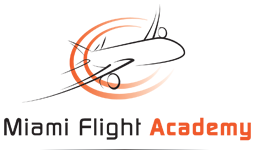News and Updates – Drones and Wildfires Don't Mix-Period
If you fly your drone anywhere near a wildfire, you could get someone killed.
Thats the stern warning the Federal Aviation Administration (FAA) and U.S. wildland fire agencies have for pilots of unmanned aircraft (UAS, or more popularly drones) who interfere with fighting wildfires. When firefighting aircraft have to be grounded due to an unauthorized drone flight, there are serious risks not just to first responders but also to anyone in the fires path.
Authorized drone missions by the proper authorities can yield valuable information to firefighters by detecting hotspots, charting a fires spread and the progress in controlling a blaze. But when an unauthorized drone is spotted, they may have to stop all helicopter and airplane operations. Unauthorized drone flights create collision hazards to firefighting aircraft and can distract pilots who are operating in stressful and challenging conditions. Wildland fire agency reports give a sense of how a single errant drone can disrupt operations:
Drone spotted by pilot at eye level during [helicopter] bucket work spotted a drone over fire. All helicopter operations shut downUAS incursion stopped aerial firefighting assets UAS intrusion into TFR (Temporary Flight Restriction). Helicopters disengaged from fire.
If you own a drone, DO NOT fly near or over a wildfire, said FAA Acting Administrator Dan Elwell. Its against the law, and firefighting aircraft could be grounded, disrupting time-critical firefighting efforts. Your hobby is not worth another persons life.
Most members of the public would never dream of standing in front of a fire engine to stop it from getting to a wildfire, but thats essentially what theyre doing to aerial firefighting aircraft when they fly a drone over or near a wildfire, said Jennifer Jones, spokesperson with the U.S. Department of Agriculture Forest Service at the National Interagency Fire Center in Boise, Idaho.
If unauthorized drone operations interfere with wildfire suppression, law enforcement, or emergency response efforts, those drone operators could face civil penalties that exceed $20,000 and potential criminal prosecution.
Anyone who witnesses or has information about an unauthorized drone flight over or near a wildfire should immediately contact local law enforcement.
Deterring interference with first responders, as well as giving way to other aircraft in the sky, becomes more important as drone use expands exponentially. The FAAs rules for flying unmanned aircraft are clear. Keep your drone away from other aircraft operations, including aerial firefighting missions.
You just might save someones life.
